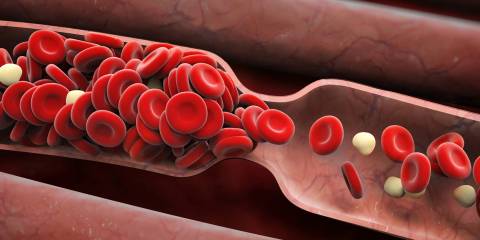What is Whole Blood Viscosity?
Whole blood viscosity is a measure of the blood’s ability to flow freely throughout the arteries and veins in the circulatory system. It’s also described as the thickness and stickiness of blood.
Having high blood viscosity increases the resistance of normal blood flow, which causes friction and abrasion against the vessel walls, not optimal for cardiovascular function.
It can also lead to decreased oxygen, and nutrient delivery to organs and tissues throughout the body.
What is Fibrin?
Fibrin is a major component of scar tissue and blood clotting. Healthy adults maintain a normal fibrin equilibrium, which supports the proper thickness and stickiness of the blood.
However, aging bodies tend to be enzyme deficient, making proper blood viscosity maintenance more difficult.
Neprinol supplies adequate levels of enzymes for those seeking enzyme sufficiency.




